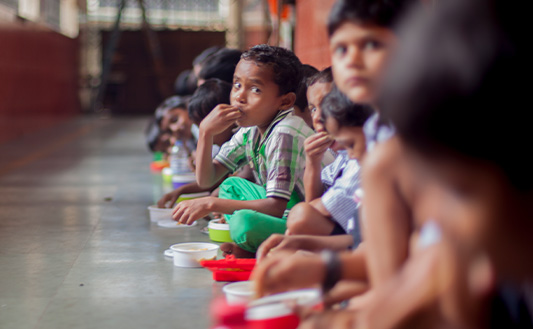
As the world grapples with issues of hunger and malnutrition, mid-day meals have emerged as a critical tool in building a better future for our children. In India, the mid-day meal programme, also known as MDM yojana, has been a lifeline for millions of children, providing them with nutritious meals during school hours. At the forefront of this movement are the numerous Indian NGOs that have taken up the mantle of ensuring that no child goes hungry. With their tireless efforts, these organizations have not only helped feed millions of children but have also played a crucial role in improving the overall health and well-being of their communities.
According to a recent UN report, over 828 million people around the world suffer from chronic hunger, and 149 million children under the age of five are stunted due to malnutrition. In India, the situation is no different, with more than one-third of the country’s children under the age of five suffering from malnutrition. The MDM scheme has emerged as a game-changer in such a scenario, providing nutritious meals to millions of children daily. The MDM programme provides nutritious meals that include cereals, pulses, vegetables, and fruits, helping to combat hunger and malnutrition among school children. It has been reported that mid-day meals have led to improved nutritional status, reduced stunting and wasting, and increased school attendance.
Improving School Attendance and Retention
Access to education is crucial for building a better future. However, hunger and malnutrition often act as barriers to school attendance and retention, particularly among children from economically disadvantaged backgrounds. The Mid-Day Meal programme has been successful in addressing this issue. According to a study, mid-day meals have significantly increased school attendance and retention rates. The study found that students who received mid-day meals had a higher attendance rate and were more likely to complete primary education than those who did not.
Enhancing Learning and Academic Performance
Nutrition plays a critical role in cognitive development and academic performance. Malnourished children are likelier to have lower IQ levels, impaired cognitive abilities, and perform poorly in school. The MDM programme helps improve learning outcomes by providing essential nutrients that support brain development and academic performance. According to a study conducted by the Indian Institute of Management in Calcutta and the European School of Management and Technology in Berlin, a positive correlation exists between the duration of school meals and students’ performance on standardized reading and mathematics tests. The study found that children who received mid-day meals exhibited better attention spans, increased classroom participation, and higher academic performance. In particular, students who had school lunches for three to four years had an average reading score of 18% higher than those who had them for less than a year and those who did not receive mid-day meals.
Promoting Social Equity and Inclusion
The MDM yojana promotes social equity and inclusion by providing free meals to all children, regardless of their socio-economic status, caste, or religion. It ensures that children from marginalized communities have access to nutritious meals, helping to reduce disparities in health and education. The programme also promotes gender equality by encouraging the enrollment and retention of girls in schools. It has a long-term impact on breaking the cycle of poverty and creating a more inclusive and equitable society.
Boosting Local Agriculture and Economy
The PM Poshan Yojana positively impacts local agriculture and the economy. The programme sources local farmers’ food grains, vegetables, and fruits, creating demand for local produce and supporting local economies. It not only boosts farmers’ income but also promotes sustainable agriculture practices and reduces the carbon footprint associated with transporting and storing food items.
Creating Awareness about Healthy Eating Habits
Mid-day meals programmes also play a vital role in creating awareness about healthy eating habits among children. By exposing children to diverse and nutritious meals early, the Indian NGOs encourage healthy eating practices that can be carried forward into adulthood, promoting a healthier lifestyle and reducing the burden of non-communicable diseases in the long run.
In conclusion, mid-day meals are much more than just a meal. It is the lifeline for building a better world, one child at a time. By investing in mid-day meals, we are addressing hunger and malnutrition, empowering children, promoting equality, supporting local economies, and fostering sustainability. Let us unite to prioritize and support mid-day meal programs, as they hold the key to feeding the future and creating a brighter, more equitable world for future generations. Together, we can ensure that every child has the opportunity to thrive and reach their full potential, leaving a lasting impact on our planet and its people.





